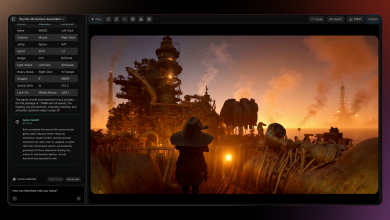In this interview between Amer Nasereddin (AN), Founder and Managing Director at Primus and Tom Allen (TA), Founder of The AI Journal, you’ll get an understanding of why the middle east’s technology scene is arguably the worlds most exciting.
TA: You have significant experience in the Middle East market – why is that an exciting area for business growth?
AN: The area is a hub for new business and new opportunities – we have all witnessed its growth in the past couple of years. In fact, many have described the last few years as the tech revolution of the Middle East, with new startups launched every day and a lot more focus on attracting the world’s top talent. The region is not only home to thriving local businesses, but also hosts the headquarters of several international companies – making it the perfect environment to network and build your business. The networks of entrepreneurs here have made this journey so much easier as well – the Entrepreneurs’ Organization (EO) has a huge chapter here simply by virtue of the positive start-up environment in the Middle East.
Governments are increasingly investing in founder-friendly initiatives and the relatively young age of the population across the region shows all the signs of a flourishing future, especially in the tech sector. I like to say that the pandemic has supercharged the technology sector in the Middle East: ever since social distancing rules were introduced, digital technologies have kept more than one sector in operation. Thanks to these changes, we have been able to accelerate the uptake of online services, and the need for businesses and individuals to shift activities online has helped eliminate resistance to digital transformation – this is only bound to continue in the coming years.
TA: How can you stand out in the crowded field of tech and IT start-ups?
AN: While maybe simple, my critical piece of advice for new companies is: do not just reinvent a product that already exists, do something to improve it.
Make it better, create an ecosystem of offerings and services around it that complement your service. Your investors, and customers, want something better than what was there before.
I founded my software company, Primus, back in 1996. The business environment is quite different now, but I can say that my company provided offerings that benefitted whole companies and their owners as well as their employees, creating a system of offerings that helped improve outcomes for everyone, and that’s what allowed me to build a successful business that expanded oversea and is still thriving, 25 years later.
TA: What is one thing that the Middle East could teach the world about tech?
AN: The pandemic has definitely shifted the population’s view on technology – we are all used to doing things online that we never did just a couple years ago. The Middle East is a particularly good example of a region with a wide digital divide – which has become quite clear during the pandemic. Schools and shops have done an amazing job at adjusting in areas with poor digital uptake and low digital literacy, showing the resilience and ingenuity of people in this area of the world.
The adaptability shown by the whole region is something we can all learn from, and this flexibility will be fundamental for the future of successful companies. We have also seen companies supporting one another during this change, and have learned that we can achieve so much when we work together, especially during tricky times like the past couple of years.
This has always been the spirit of EO and the wider entrepreneurship community, but the pandemic has highlighted the importance of this concept. While the digital divide still needs to be addressed and there is more work to do, we now live in an environment of more acceptance towards digital tools, which also represents a great opportunity for companies in the tech field to flourish and provide the tools necessary to work and learn in the region.
TA: Are there any trends you can identify in the future of tech in the Middle East?
AN: Given our young population, the Middle East provides fertile ground for companies in the education field. In an area where armed conflicts have not been uncommon and have presented obstacles to traditional schooling, we are seeing many young and innovative entrepreneurs providing excellent approaches, tools and platforms across the learning spectrum to help children access the education they need. For instance, we have a large refugee population and there is so much that budding entrepreneurs can do to support children in these difficult situations. Impact investing will be a great opportunity for entrepreneurs to be successful while at the same time supporting their regions in building a resilient future.
TA: What do you think young entrepreneurs need to do to be successful?
AN: While the obvious answer would be to find the gaps in the market and create a product that improves your customers’ lives, I think a very valuable tool to have, and often an underrated one, is a community of likeminded people. Through my work with the Entrepreneurs’ Organization and Endeavor Jordan, I mentor the next generation of entrepreneurs and offer help and advice when needed. It is often an undervalued part of building a successful business, but a good support system can be what makes the difference between a thriving business and a failing one. Surrounding yourself with people who have done it before and have been in your same situation can prevent many downfalls and help you get back on your feet when mistakes do happen. Continuing to network, listen and ask questions is the best way to improve your business and your skills as an entrepreneur.



